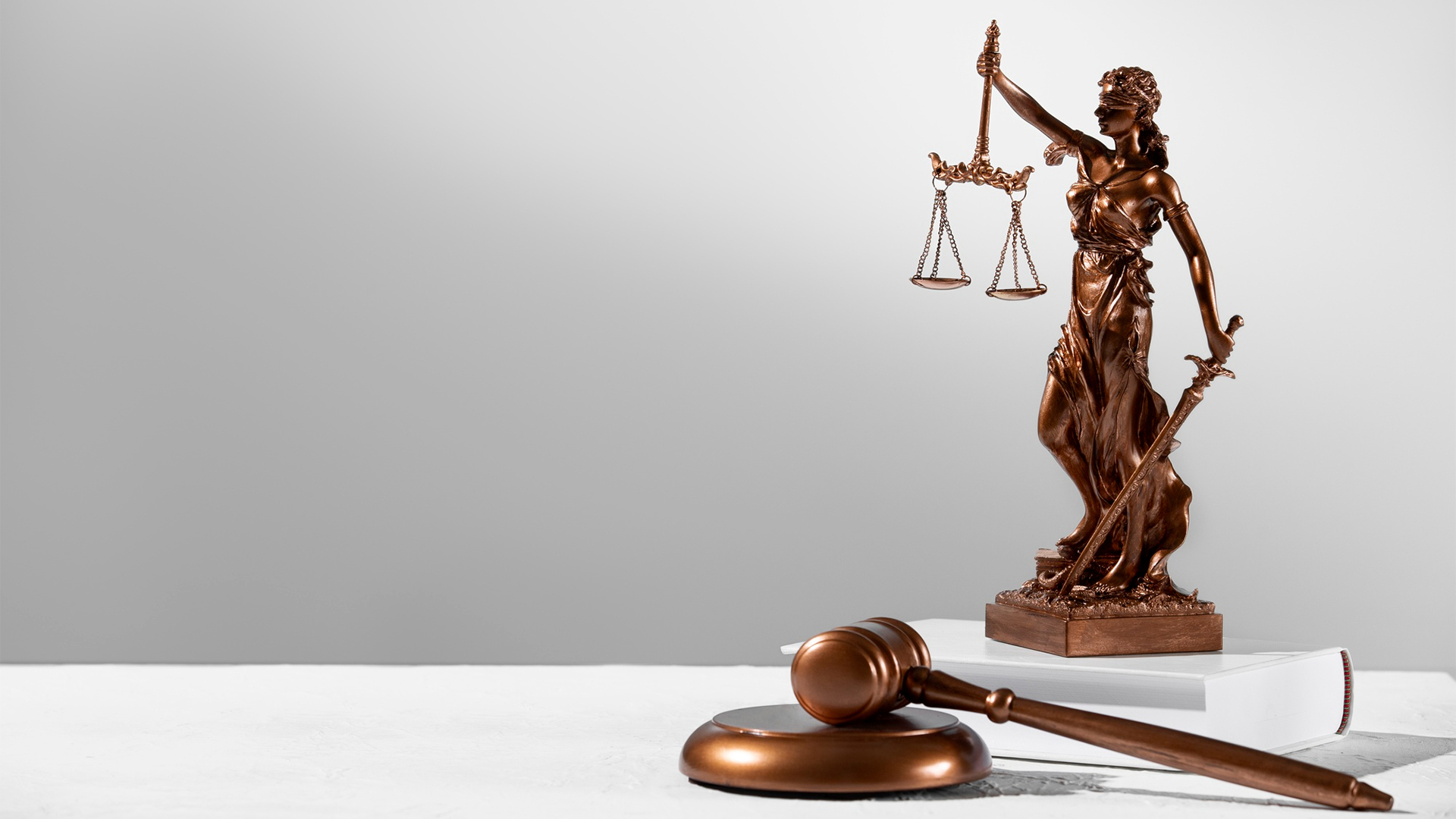
The Winning Strategy: Courtroom Skills & Procedures
Course overview
Anyone who is compelled to present evidence or testify in court in a professional capacity has to be very skilled in the courtroom.
In order to present facts, information, and evidence effectively and to make the most of their arguments, lawyers must also have courtroom skills. Although these professionals will need to acquire a number of courtroom skills, the focus is placed most heavily on confidence and communication skills.
In order for the information to be delivered in a logical flow and kept by the appropriate audience to support them in drawing the essential conclusions, presentation must be able to attract audience attention. It is imperative that solicitors hone their abilities and gain knowledge of how witnesses and non-legal professionals could act in a courtroom.
A courtroom may be intimidating and contentious for people who are testifying or presenting evidence for the first time. Thus, body language, clarity of communication, and openness all contribute to the credibility of the information stated and presented in court.
One should be able to take advantage of the circumstance in any position, whether as a witness or a practitioner. Understanding legal strategies is crucial for witnesses because they need to know how to respond, what to say, how much to say, and what to anticipate when being questioned.
Making a confident, concise, and straightforward introduction of oneself and one’s knowledge is crucial for creating a trustworthy first impression. For people who don’t have any experience or knowledge of a judicial setting or procedure, cross-examination might be challenging.
Introduction
One would need to be trained in order to be able to take advantage of the opportunity to speak, since the capacity to bear cross-examination while still allowing one’s point come through strongly and clearly is extremely vital.
For justice to win, courtroom skills are crucial for corporates, workers, and practitioners. Providing evidence needs careful planning, preparation, and thought.
With the knowledge and experience gained through this Training Bee training course, you will be more equipped to behave and communicate in a courtroom. It will give you a realistic grasp of and experience with a court day.
This courtroom procedures, skills, and expert witness training course will assist you in giving persuasive testimony in court and in organizing your arguments logically. Additionally, you will comprehend the many strategies employed by attorneys and professionals.
This courtroom skills training program simulates a court day via hands-on practice. This training will assist legal practitioners in understanding the mindset and psychology of witnesses and will equip them to present the evidence objectively.
We are The Training Bee, a global training and education firm providing services in many countries. We are specialized in capacity building and talent development solutions for individuals and organizations, with our highly customized programs and training sessions.
Learning Objectives
Upon completing The Winning Strategy: Courtroom Skills & Procedures, participants will be able to:
- In-depth knowledge of the adversarial system and courtroom environment.
- The necessary details and expertise in actual judicial procedures.
- The knowledge and expertise necessary to seem credible in court, either as a witness or as a professional.
- The ability to present evidence in a clear, logical, and impartial manner, as well as the confidence and communication skills required to comprehend the fundamental principles of evidence.
- Sufficient knowledge of effective nonverbal communication techniques to establish credibility.
- The knowledge and expertise required to withstand cross-examination
- The expertise and knowledge required to use supporting documentation, notes, and proof in the right way.
Our Unique Training Methodology
This interactive course comprises the following training methods:
- Journaling – This consists of setting a timer and letting your thoughts flow, unedited and unscripted recording events, ideas, and thoughts over a while, related to the topic.
- Social learning – Information and expertise exchanged amongst peers via computer-based technologies and interactive conversations including Blogging, instant messaging, and forums for debate in groups.
- Project-based learning
- Mind mapping and brainstorming – A session will be carried out between participants to uncover unique ideas, thoughts, and opinions having a quality discussion.
- Interactive sessions – The course will use informative lectures to introduce key concepts and theories related to the topic.
- Presentations – Participants will be presented with multimedia tools such as videos and graphics to enhance learning. These will be delivered engagingly and interactively.
Training Medium
This Winning Strategy: Courtroom Skills & Procedures training is designed in a way that it can be delivered face-to-face and virtually.
Course Duration
This training is versatile in its delivery. The training can be delivered as a full-fledged 40-hour training program or a 15- hours crash course covering 5 hours of content each day over 3 days
Pre-course Assessment
Before you enroll in this course all we wanted to know is your exact mindset and your way of thinking.
For that, we have designed this questionnaire attached below.
- What constitutes the courtroom’s key structural elements, and how do they support the administration of justice?
- Describe the function of an expert witness in a court case and the importance of their evidence.
- Describe the direct examination of an expert witness procedure, including the major tactics used to effectively and convincingly convey complicated facts.
- What are the many forms of admissible evidence in a court of law, and how do they vary in terms of their reliability and relevance?
- Describe how to prepare an expert witness for cross-examination and how to deal with difficult questions from the other side’s attorney.
- Discuss the idea of privilege and its significance in preventing the disclosure of some communications during judicial processes.
Course Modules
This Winning Strategy: Courtroom Skills & Procedures covers the following topics for understanding the essentials of the Agile Workplace:
Module 1 – Courts and Courtrooms Overview
- Definition
- Various court types
- Varieties of law
- Law’s sources
Module 2 – Different Courtroom Techniques
- Talents in communication.
- Presenting abilities.
- Creating decisions.
- Listening intently.
Module 3 – Verbal Communication: Courtroom Skills Elements
- Definitions of key terms
- Both formal and casual language
- Language proficiency Written expression
- Set guidelines
- Map in mind
- Repetition
- Defined and explained
- Paraphrasing
Module 4 – Non-Verbal Communication: Courtroom Skills Elements
- Voice
- Keeping a gaze
- Moods of the face
- Gestures
- Posture, gait, and body position
- Space use and room layout
Module 5 – Active Listening in Four Easy Steps
- Keeping the speaker and message in mind
- As required, elaborate on a message
- Show that you grasp the message.
- Encourage meaning clarification and confirmation
Module 6 – Skills of a Competent Practitioner
- To challenge with confidence
- Credibility (of the current justification for the choice)
- Review (to determine impact)
- Creativity (to change a strategy)
Module 7 – The Process of Making Presentations: Important Elements
- Reading
- Research
- Resources
- Reflection
Module 8 – Benefits of Courtroom Competence
- Improvement of one’s career
- Credibility Justice
- Correct presentation of the facts
- Quicker resolution of legal matters
Post-course Assessment
Participants need to complete an assessment post-course completion so our mentors will get to know their understanding of the course. A mentor will also have interrogative conversations with participants and provide valuable feedback.
- What are the most important ethical issues you must bear in mind while testifying as an expert? Give detailed instances of how you would handle any potential ethical conundrums.
- How would you respond to tough questions from the opposing counsel during cross-examination while retaining your credibility and composure?
- Describe the steps involved in creating an expert witness report, as well as the crucial components that must be included for it to be thorough and convincing.
- How can an expert witness make sure that a jury understands the relevance and significance of difficult technical information by properly communicating it to them?
- How would you prove your credentials and skill in your profession, as well as the procedures for approving an expert witness in court?
Lessons Learned
Role and responsibilities of an expert witness: You have a thorough awareness of the significant function an expert witness performs in a court case. You’ve learned about your ethical responsibilities to respect professional standards while offering objective, unbiased testimony.
Effective Communication Skills: Through the program, you have developed your capacity to succinctly and clearly convey complicated technical knowledge. You now recognize the significance of adapting your message to the needs of various audiences, such as judges, jurors, and lawyers.
Managing the Challenges of Cross-Examination: You’ve mastered the art of handling difficult cross-examination scenarios while remaining composed in the face of tough questions from the opposing counsel. You now understand how important composure and believability are throughout this crucial stage of a trial.
“Expert Testimony to Advance Justice: Successful Training Completion!”







